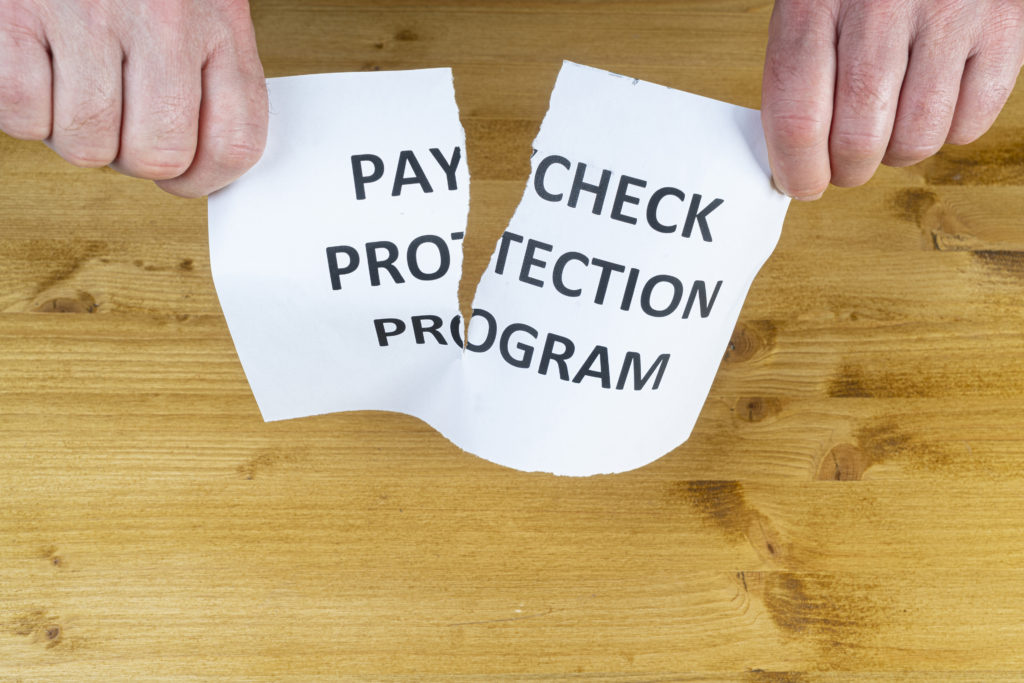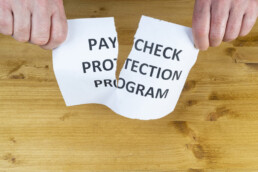Court Orders Uber and Lyft to Reclassify Drivers as Employees

In a recent court decision, a California judge has ordered Uber and Lyft to classify their drivers as employees in a tremendous victory for the estimated 4.6 million ride-hailing drivers in California. The August 10, 2020 decision is part of the on-going lawsuit alleging the companies misclassified drivers as independent contractors in order to avoid providing benefits including overtime wages, health insurance and paid leave. The ride-hailing companies are expected to appeal the ruling, which would fundamentally alter the business models of ride-hailing companies in California, and perhaps have an impact across the country as similar lawsuits are being considered.
What is the lawsuit about?
The core issue in the lawsuit against Uber and Lyft is whether drivers have been misclassified as “independent contractors” instead of employees. Uber and Lyft argue that drivers are not employees, and therefore do not have to provide drivers with the benefits required under state and federal labor law. The issue has broader implications as well for similar employees, known as “gig workers.”
The state of California has some of the country’s strongest laws protecting employees, and have been aggressively challenging the classification of drivers as independent contractors. Significantly, on January 1, 2020, California Assembly Bill No. 5 (A.B. 5) went in to effect and expanded the definition of “employee.” The new law essentially requires Uber and Lyft to reclassify drivers as employees and provide drivers with benefits including minimum wages, workers comp, unemployment, overtime wages, paid rest periods, paid sick and family leave and health insurance. Employers would also have to reimburse drivers for use of personal vehicles for work.
According to a 2018 ruling by the California Supreme Court, there is a three-prong test to determine whether a worker is an employee or an independent contractor. The test presumes a worker is an employee unless the employer can prove the following:
- The worker is free to perform services without the control or direction of the company;
- the worker performs work tasks outside the employer’s usual course of business; and
- the worker engages in work that is customarily established to be an independent trade, business or occupation.
As a result of A.B. 5, lawsuits were filed alleging Uber and Lyft violated the law by continuing to withhold benefits from drivers by misclassifying them. Under state law, employers must convince a court that workers are independent contractors based on the test established in 2018. On August 10, 2020, Judge Ethan Schulman granted a request by the attorney general for a preliminary injunction and ordered Uber and Lyft to comply with A.B. 5 and reclassify drivers as employee. According to the order, it’s “simple.” Based on the test established by case law, the court concluded that “drivers do not perform work that is ‘outside the usual course’ of their business.” Therefore, because the companies could not satisfy the test to show drivers are independent contractors, the court ordered Uber and Lyft to reclassify drivers as employees within 10 days of the order.
What’s next?
Unfortunately, despite the court’s ruling, it is not clear if and when drivers will be reclassified as employees. Not surprisingly, Uber and Lyft have indicated they plan to file appeals, but the court order is scheduled to be effective August 20, 2020, which means the drivers must be classified as employees by that date. Unless a stay is granted, which would delay the court’s order from going in to effect, both Uber and Lyft have threatened to stop operating in California stating that the new classification would not be financially feasible. According to Uber CEO Dara Khosrowshahi, “If the court doesn’t reconsider, then in California, it’s hard to believe we’ll be able to switch our model to full-time employment quickly.”
California Attorney General Xavier Becerra, however, is not concerned about threats to stop operations in California because “Any business model that relies on short-changing workers in order to make it probably shouldn't be anywhere, whether California or otherwise,"
Upcoming Ballot Measure Challenging A.B. 5
The ride-hailing companies are also bringing the case directly to California voters this November in a ballot measure seeking to classify ride-haling drivers as independent contractors. The ballot measure also requires the companies to adopt certain labor policies, but do not provide as many benefits or protections that employees in California are guaranteed by law.
The measure, Proposition 22, is already the subject of vigorous campaigning by both sides. On the ballot, Proposition 22 is titled “Exempts app-based transportation and delivery companies from providing employee benefits to certain driver.” If passed, drivers will be lawfully categorized as independent contractors and will not be entitled to employee benefits that are guaranteed in California. Instead, Uber and Lyft will be required to provide “alternative benefits,” but not at the level that California and federal law currently requires.
FREE CONSULTATION
Srourian Law Firm, with locations in Los Angeles, Westwood, Woodland Hills, and Orange County is experienced in all aspects of employment law including misclassifying workers, and have aggressively represented employees in Los Angeles, Hollywood, Santa Monica, Orange, Irvine, Anaheim, Santa Ana, Newport Beach, Costa Mesa, Fullerton, Tustin, Mission Viejo, San Clemente, Garden Grove, Laguna Niguel, Brea, Fountain Valley, Aliso Viejo, Yorba Linda, Westminster, Laguna Hills, Cypress, and La Habra.
If you or someone you know suffered employment violations due to misclassification by ride-hailing companies, you may have certain employee rights under state and federal law, and may be entitled to compensation as a part of the class action lawsuit. Please contact us to speak with one of our lawyers for a free consultation.
FAQs on PPP Fraud

Many businesses have benefited from PPP loans during closures due to COVID-19. PPP funds, however, are supposed to benefit employees by providing financial assistance to businesses to maintain payroll, employee benefits and other business expenses. If you are aware of any PPP fraud by your employer, you have an obligation to report the fraud. Moreover, you are protected from any retaliation for reporting any violations.
Q: What is PPP fraud?
A: PPP (Paycheck Protection Program) fraud includes any misuse of funds from the Small Business Administration (SBA) in response to COVID-19. In an effort to provide financial assistance to businesses during the pandemic. Any business that received PPP money, must use the money for specific business expenses such as payroll, employee benefits, rent, interest on mortgages, and utilities. The intent of the PPP was to ensure that businesses could continue to pay employees and cover necessary businesses expenses during mandatory closures.
Unfortunately, there is a growing concern that businesses have been violating the requirements of PPP. This fraudulent behavior has resulted in the money not being used to pay employees as intended. Examples of PPP fraud include falsifying information on PPP applications, providing inaccurate data regarding employees, and misdirecting PPP funds away from payroll.
Q: What happens if I learn my company committed PPP fraud?
A; If you learn that your company has committed PPP fraud, you must report the fraud. However, there are steps you can take to protect your rights. First, you should review any paperwork you signed as a condition of employment. This will include any employment contract, documents signed during orientation and training, as well as any employee handbooks. These documents often include a company policy that employees will act honestly and report fraud. In other words, you could be violating a company policy by not reporting the fraud. Second, you should consult with an experienced labor law attorney who can not only advise you of the legal issues, but more importantly, will protect your rights.
A: Can my company fire me for reporting PPP fraud?
A: No. If you report PPP fraud, you are protected by federal and state laws as a whistleblower. Any punitive action taken by an employer against an employee for reporting PPP fraud (or any violation of a law or regulation) is specifically protected under laws against whistleblower retaliation. In addition to federal protection, California has very strong labor laws that protect whistleblowers. Specifically, California Labor Code section 1102,5 (in part) states:
An employer, or any person acting on behalf of the employer, shall not retaliate against an employee for disclosing information, or because the employer believes that the employee disclosed or may disclose information.
The broad protection under California law not only protects whistleblowers from retaliation, but also protects an employee who are believed to be a whistleblower by the company. Other forms of retaliation that are prohibited by law include threats, demotions, reduced hours or pay, blacklisting or denying a promotion that is merited.
Q: Can I sue my company if they retaliate against me for reporting PPP fraud?
A: Yes. If you report PPP fraud by your company, and are the victim of retaliation because of the report, you have a right to sue under federal and state law. Moreover, the company can also face significant civil penalties. An experienced labor law attorney can review your case and help you decide what course of action is best. More importantly, consulting with an attorney will protect your rights as an employee and possible whistleblower.
FREE CONSULTATION
Srourian Law Firm, with locations in Los Angeles, Westwood, Woodland Hills, and Orange County is experienced in all aspects of employment law including PPP fraud and whistleblower retaliation, and have aggressively represented employees in Los Angeles, Hollywood, Santa Monica, Orange, Irvine, Anaheim, Santa Ana, Newport Beach, Costa Mesa, Fullerton, Tustin, Mission Viejo, San Clemente, Garden Grove, Laguna Niguel, Brea, Fountain Valley, Aliso Viejo, Yorba Linda, Westminster, Laguna Hills, Cypress, and La Habra.
If you or someone you know suffered employment violations due to PPP fraud or whistleblower retaliation, you may have certain employee rights under state and federal law, and may be entitled to compensation as a part of the class action lawsuit. Please contact us to speak with one of our lawyers for a free consultation.


